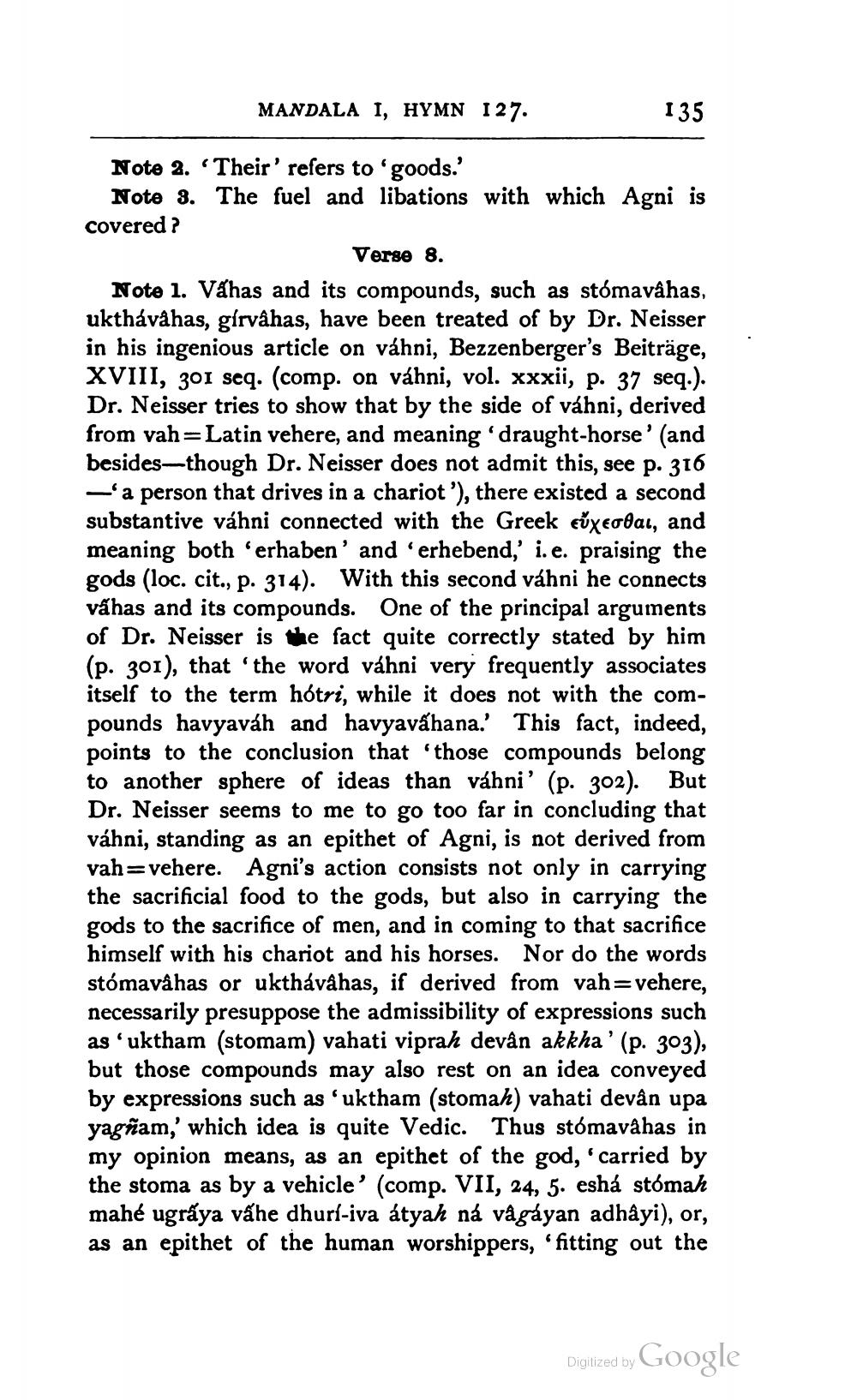________________
MANDALA I, HYMN 127.
135
Note 2. “Their' refers to 'goods.'
Note 3. The fuel and libations with which Agni is covered ?
Verse 8. Note 1. Váhas and its compounds, such as stómavâhas, uktháváhas, gírvâhas, have been treated of by Dr. Neisser in his ingenious article on váhni, Bezzenberger's Beiträge, XVIII, 301 seq. (comp. on váhni, vol. xxxii, p. 37 seq.). Dr. Neisser tries to show that by the side of váhni, derived from vah=Latin vehere, and meaning 'draught-horse' (and besides—though Dr. Neisser does not admit this, see p. 316 - a person that drives in a chariot'), there existed a second substantive váhni connected with the Greek cöxeolar, and meaning both erhaben' and 'erhebend,' i.e. praising the gods (loc. cit., p. 314). With this second váhni he connects váhas and its compounds. One of the principal arguments of Dr. Neisser is the fact quite correctly stated by him (p. 301), that 'the word váhni very frequently associates itself to the term hótri, while it does not with the compounds havyaváh and havyaváhana.' This fact, indeed, points to the conclusion that those compounds belong to another sphere of ideas than váhni' (p. 302). But Dr. Neisser seems to me to go too far in concluding that váhni, standing as an epithet of Agni, is not derived from vah=vehere. Agni's action consists not only in carrying the sacrificial food to the gods, but also in carrying the gods to the sacrifice of men, and in coming to that sacrifice himself with his chariot and his horses. Nor do the words stómavåhas or ukthavâhas, if derived from vah=vehere, necessarily presuppose the admissibility of expressions such as 'uktham (stomam) vahati viprah devân akkha' (p. 303), but those compounds may also rest on an idea conveyed by expressions such as 'uktham (stomah) vahati devân upa yagñam,' which idea is quite Vedic. Thus stómavâhas in my opinion means, as an epithet of the god, carried by the stoma as by a vehicle' (comp. VII, 24, 5. eshá stómah mahé ugráya váhe dhuri-iva átyah ná vågayan adhảyi), or, as an epithet of the human worshippers, 'fitting out the
Digitized by Google




